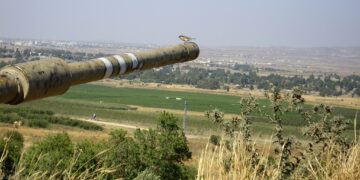May 6, 2025
As Donald Trump prepares for Middle East visit, his efforts there aren’t inspiring

With the exception of a short trip to the Vatican to attend Pope Francis’ funeral, President Donald Trump has stayed stateside during the first three months of his second term. That will change May 13, when the president begins a three-day visit to the Middle East to attend a series of meetings with Gulf Arab leaders and possibly drop in on a Gulf Cooperation Council summit.
With the trip a week away, we still don’t know what Trump’s agenda is or what he seeks to accomplish. One could make a reasonable guess that the administration will try to finalize some “big, beautiful” deals with the Gulf Arab states in the form of investments in certain U.S. sectors as well as the usual U.S. defense exports past presidents have been so fond of inking.
The latter is already underway. The State Department recently notified Congress of a $3.5 billion deal that would sell 1,000 air-to-air missiles to Saudi Arabia. The Trump administration is reportedly trying to wrap up a gigantic $100 billion arms package to the Saudis as well. If this sounds familiar, that’s because it is—during his first term, Trump proposed a $110 billion arms deal to Riyadh, parts of which stalled after Saudi Crown Prince Mohammed bin Salman was found responsible for the 2018 murder of Washington Post columnist Jamal Khashoggi.
Other than that, however, it’s hard to envision Trump achieving anything major during his trip. Much of what is occurring in the Middle East is beyond Washington’s capacity to control, and the issues the United States has some ability to influence—such as the war in Gaza—have been written off as lost causes.
More on Middle East
Featuring Jennifer Kavanagh
August 28, 2025
Events on Grand strategy








